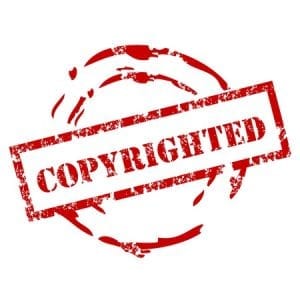Copyrighting Your Song
Copyrighting Your Song
What does copyrighting a song mean?
Where do I go to copyright my song or music?
Which is the correct copyright form to use?
What is the cost of copywriting my music?
What doesn’t a copyright cover?
Is there a way to copyright my song without using a copyright office?
Is my copyright good in other countries?

What does copyrighting a song mean?
When you write or record your own song, you're the official copyright owner because the song is your creation. According to copyright law, a new creative work is automatically copyrighted in the moment of it's creation. Which means, as soon as you've written a song, all rights for that work immediately reside with you as the copyright owner. The only requirement is that it’s fixed in a tangible form. That is, it's written down in notation or recorded. This protects both published and unpublished creations.
Simply put, when you submit a song to a copyright office you're legally protecting that song by giving them notice that this song was created by you and the date it was created on. Here you're not only protecting that song, but gaining proof that you are the creator, while gaining other important benefits.
Such as:
- The right to make physical or digital copies of your work. To reproduce it.
- The right to create different adaptations of your work.
- The right to distribute it to the public. This includes CD's, Vinyls, Records, Downloads etc.
- The right to perform your work publicly. This includes live gigs, TV, and radio.
Where do I go to copyright my song or music?
This process will differ from country to country, but in the United States, you begin by submitting your song through filling out forms on this website:
Here you will have the option to choose between 2 main forms:
- A SR Form – which stands for “Sound recording form”
- A PR Form - which stands for “Performing arts form”

Which copyright form do I need to use?
R egister your song with a PA form if you want to: Register musical compositions
Here’s an example of when to fill out a PA Form:
You’d like to copyright the songs you've written and recorded for your upcoming album. However, the music production doesn't belong to you or you're not interested in registering that recording of your song. Although you DO want to register the lyrics, melody, and performance. Here, you would use a PA Form.
Register your song with a SR form if you want to: Register sound recordings
Here’s an example of when to fill out a SR Form :
You’ve performed and recorded a version of Noni Lee’s song “Ready for you”. And you’ve decided to submit that recording to be copyrighted. You would use an SR Form.
Note that the processing time for your application differs. If you are e –filing it will take 6 to 10 months. If you are sending in a paper application it will be 10 – 15 months. Always check the copyright website for current wait times. After you've made an application you can also check the status of your application through the site.
What is the cost of copywriting my music?
The standard application fee for copy writing a song starts at $35.
Be aware that if you'd like to save money, you can do so by submitting multiple songs under ONE application. This means you will only pay one application fee. Submitting many of your songs for copyright at one time, can significantly save you money over submitting songs one by one under different applications.

What doesn't copyright cover?
Even though your song has been registered and the copyright is yours, there are certain aspects of your songs that are not protected.
These are:
- a short phrase in your song
- a title
- the concept of the song (for example if you write a song about love and loss)
- chord progressions
These cannot be copyrighted mainly because they are too abstract and so it becomes complicated to protect. Think of the amount of songs that could have the same small attributes we just mentioned.
Is there a way to copyright my song without using a copyright office?
There are many musicians that try to cut corners to save money by trying to copy right their song in a "DIY" manner. A common example of this is what is called the "poor man’s copyright" option. The "poor man’s copyright option" is when you would mail a physical copy of recording of your song to yourself and keeping it sealed in order to confirm that it's copyrighted. We want to confirm that this option does not legally substitute as registering your song. There is no provision in the copyright law that secures this method as protection. We promote artists to take the proper means in protecting their music. Although other options initially look like they can save money, if you ever encounter a legal battle around your recording, you can find yourself wishing you properly registered with a copyright office.

Is my copyright good in other countries?
Visit the "International Copyright Relations of the United States" section on the copyright website posted above. Here you will find guides on how US copyright policies aligns to specific countries. Be sure to check out the nature of the US's copyright relationship with the country you're interested in.




